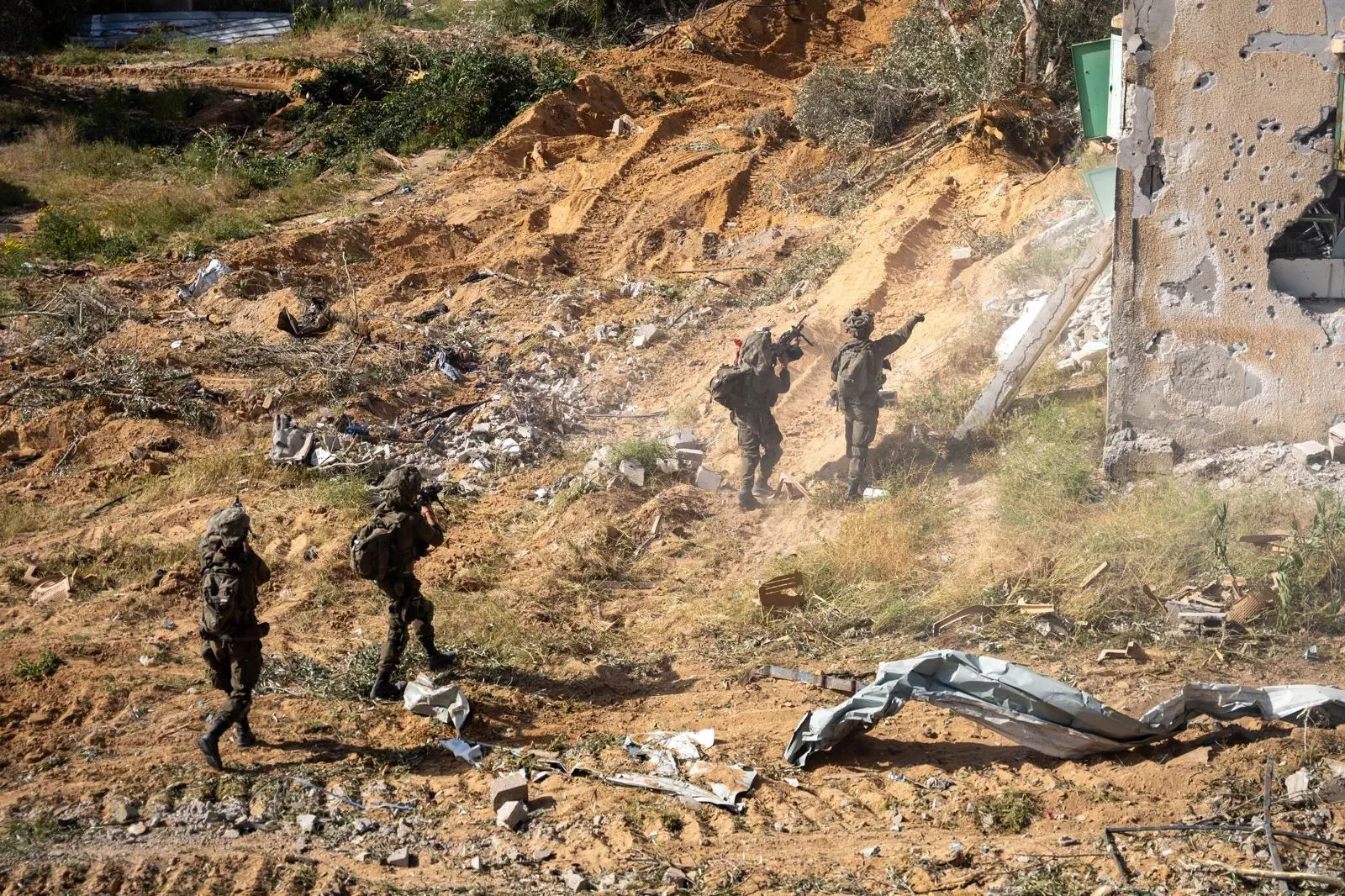With Trump’s support, Israel pushes deeper into Gaza as pressure for hostage deal mounts

Nearly a month into Israel’s renewed ground operation, the United States’ backing is having a significant impact on the conflict in various ways. The military, diplomatic, and political aspects of the conflict are all being influenced by U.S. support. Israeli officials have expressed optimism about the possibility of a hostage deal, with some even suggesting that developments could occur within the next two weeks.
During a press conference in the Oval Office, President Donald Trump, alongside Israeli Prime Minister Benjamin Netanyahu, emphasized the U.S. commitment to securing the release of the hostages. Trump mentioned the possibility of another ceasefire and reiterated the ongoing diplomatic pressure on Iran and direct support for Israel’s military campaign in Gaza.
Israel’s ground offensive, which has expanded into Rafah and the strategically important Morag Corridor, is being carried out in close coordination with the United States. Israeli officials believe that they now have a “free hand” to operate, without the threat of a UN Security Council veto. This increased freedom of action has allowed Israel to escalate its offensive and put pressure on Hamas to release the remaining hostages.
The Israeli Defense Minister announced the completion of the takeover of the Morag Axis, part of the effort to establish a new buffer zone and weaken Hamas’s operational capabilities. The IDF’s Chief of Staff has urged troops to defeat the Rafah Brigade and secure victory in the conflict.
The U.S. and Israel have reaffirmed their alignment on key issues, with discussions about third-country resettlement and the possibility of a U.S. presence in Gaza. However, some analysts have raised concerns about the long-term governance and management of cleared areas, drawing comparisons to U.S. experiences in Iraq and Afghanistan.
As the conflict continues, Israel has shifted its humanitarian policy to limit Hamas’s control over aid supplies. This change is aimed at diminishing Hamas’s influence within Gaza and pressuring the group to compromise on a hostage deal. Despite international condemnation, Israeli officials maintain that there is no shortage of humanitarian aid in Gaza and accuse Hamas of hoarding supplies for its own purposes.
As talks progress and the military and diplomatic tracks converge, there is cautious optimism among Israeli officials that a resolution may soon be reached. The ongoing conflict in Gaza remains a complex and evolving situation, with the U.S. playing a crucial role in shaping the outcome.




